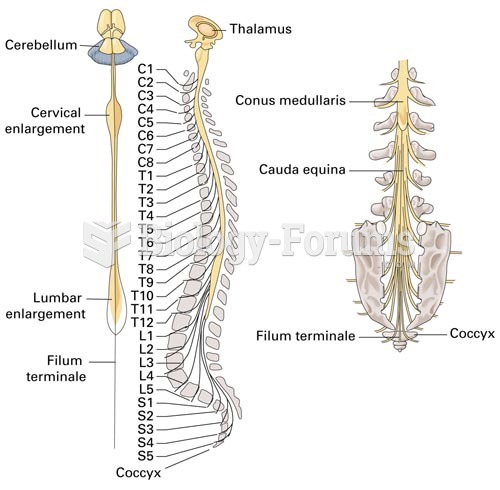|
|
|
Drying your hands with a paper towel will reduce the bacterial count on your hands by 45–60%.
Signs and symptoms that may signify an eye tumor include general blurred vision, bulging eye(s), double vision, a sensation of a foreign body in the eye(s), iris defects, limited ability to move the eyelid(s), limited ability to move the eye(s), pain or discomfort in or around the eyes or eyelids, red or pink eyes, white or cloud spots on the eye(s), colored spots on the eyelid(s), swelling around the eyes, swollen eyelid(s), and general vision loss.
The most common treatment options for addiction include psychotherapy, support groups, and individual counseling.
There are approximately 3 million unintended pregnancies in the United States each year.
The use of salicylates dates back 2,500 years to Hippocrates’s recommendation of willow bark (from which a salicylate is derived) as an aid to the pains of childbirth. However, overdosage of salicylates can harm body fluids, electrolytes, the CNS, the GI tract, the ears, the lungs, the blood, the liver, and the kidneys and cause coma or death.
 The Spinal Cord, The Spinal Cord and Spinal Nerves; Close-up of the Caudal Region of the Spinal Nerv
The Spinal Cord, The Spinal Cord and Spinal Nerves; Close-up of the Caudal Region of the Spinal Nerv
 Two areas of reduced cortical volume and one area of increased cortical volume observed in people ...
Two areas of reduced cortical volume and one area of increased cortical volume observed in people ...





